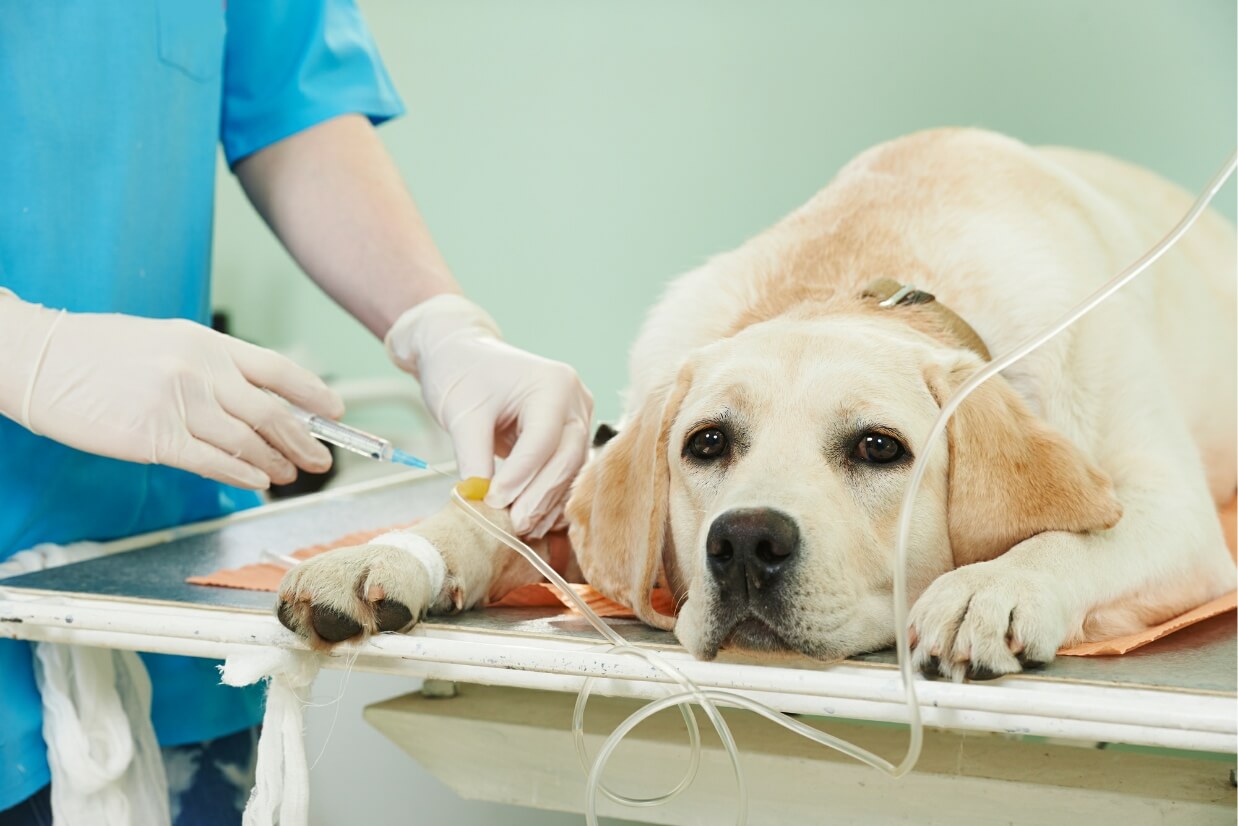
Just like people, dogs sometimes require blood transfusions. Veterinary medicine is becoming increasingly sophisticated and offers innovative ways to prolong and enhance the life of our companion animals.
Examples of Canine Blood Donation Need
There are many situations when dogs may require a blood transfusion. Medical procedures for pets are on the rise. Procedures and surgeries requiring blood transfusions include:
- Emergency and trauma injuries
- Critical care
- Oncology
- Orthopedic surgeries
- Soft-tissue surgeries
- Pre- or peri-operative surgical stabilization
- Exposure to rodenticides or other toxins
- Anemic animals with acute or chronic diseases
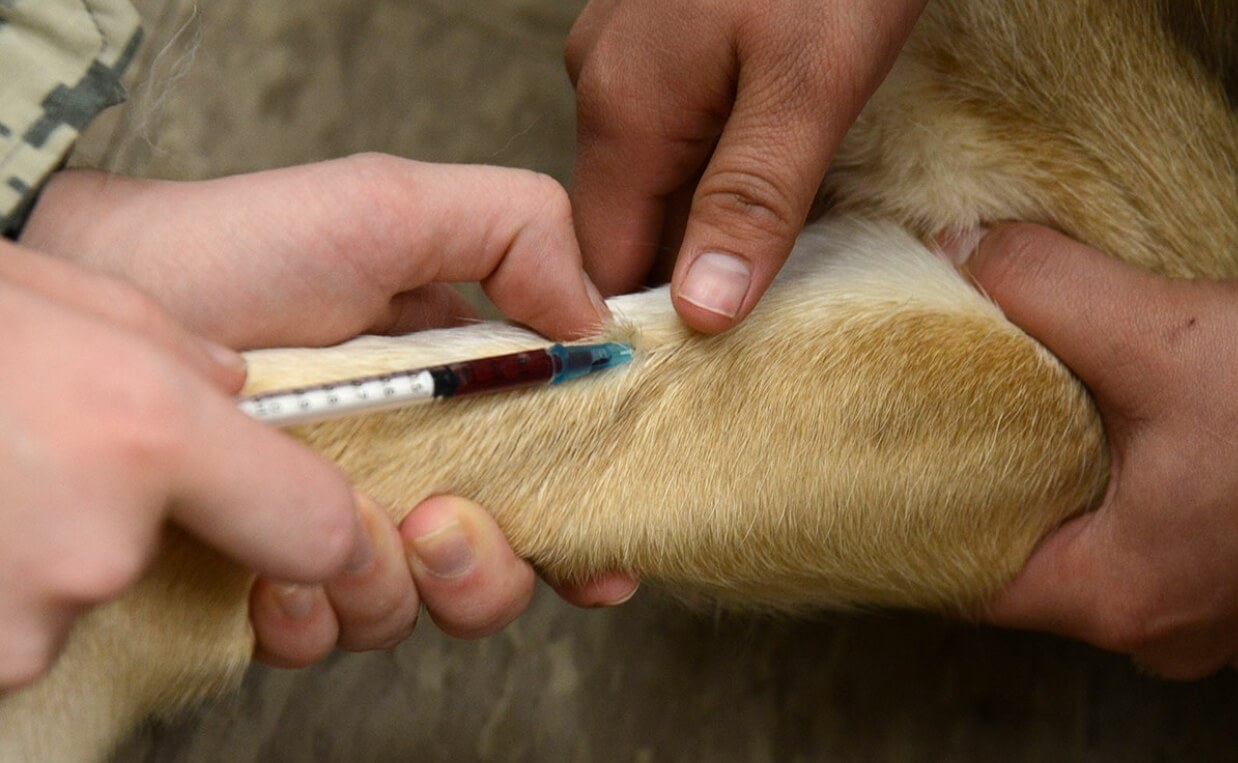
Blood Banks Rely On Donations from Volunteers
Canine blood banks are a relatively new phenomenon as are efforts to make blood and plasma available to veterinarians. There is an ever-increasing need for canine blood donations; veterinarian hospitals and even dog clubs will periodically hold blood drives in an effort to meet the growing need.
Is Your Dog Eligible to Give Blood?
There are several criteria a dog must meet in order to give blood.
-
Breed and size
Dogs of all breeds and sizes can meet donor requirements. Their size and weight will determine the type of donation program they will be placed into.
-
Temperament
In order to give blood, a dog must be calm, friendly, obedient and cooperative with strangers, even if their owner isn’t present. Canine blood donors also need to be comfortable being physically handled and examined.
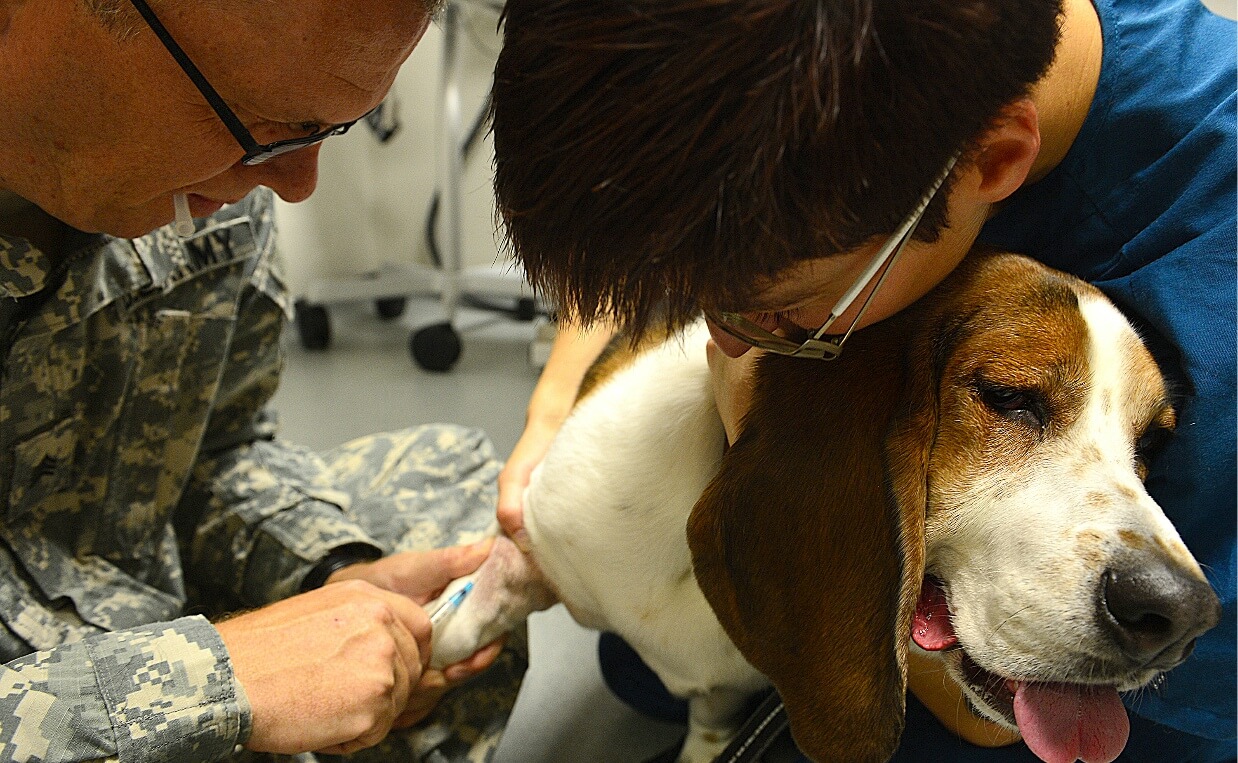
-
Health
In general, a dog must be in good health to give blood. They must be:
- Current on their vaccinations including distemper, parvovirus, parainfluenza, hepatitis, and rabies
- Free of any medications except flea, tick and heartworm preventative
- Never received a blood transfusion
- Do not have a heart murmur or other heart condition
- Some programs require no history of pregnancy in female dogs
- Not considered obese
Canine Blood Donation Procedure
The procedure for canine blood donation is fairly straightforward. First, your dog will be screened for possible conditions, such as Brucellosis, Rocky Mountain Spotted Fever and Lyme Disease.
After screening, blood donation lasts 15 to 30 minutes. Dogs are gently placed on their sides on a comfortable bed and soothed while the area near their jugular vein is cleaned and prepped. Once the area has been clipped, shaved and sterilized, blood is drawn into a sterile collection vial. After blood is collected, dogs are given affection and treats. Some programs offer donors a DNA breed test, bandana, ID tag, collar or toys.
Risks of Canine Blood Donation
The risk of donating blood is minimal to dogs. Some donors may experience soreness or minor swelling at the site; most can resume normal activities within a day of blood donation.
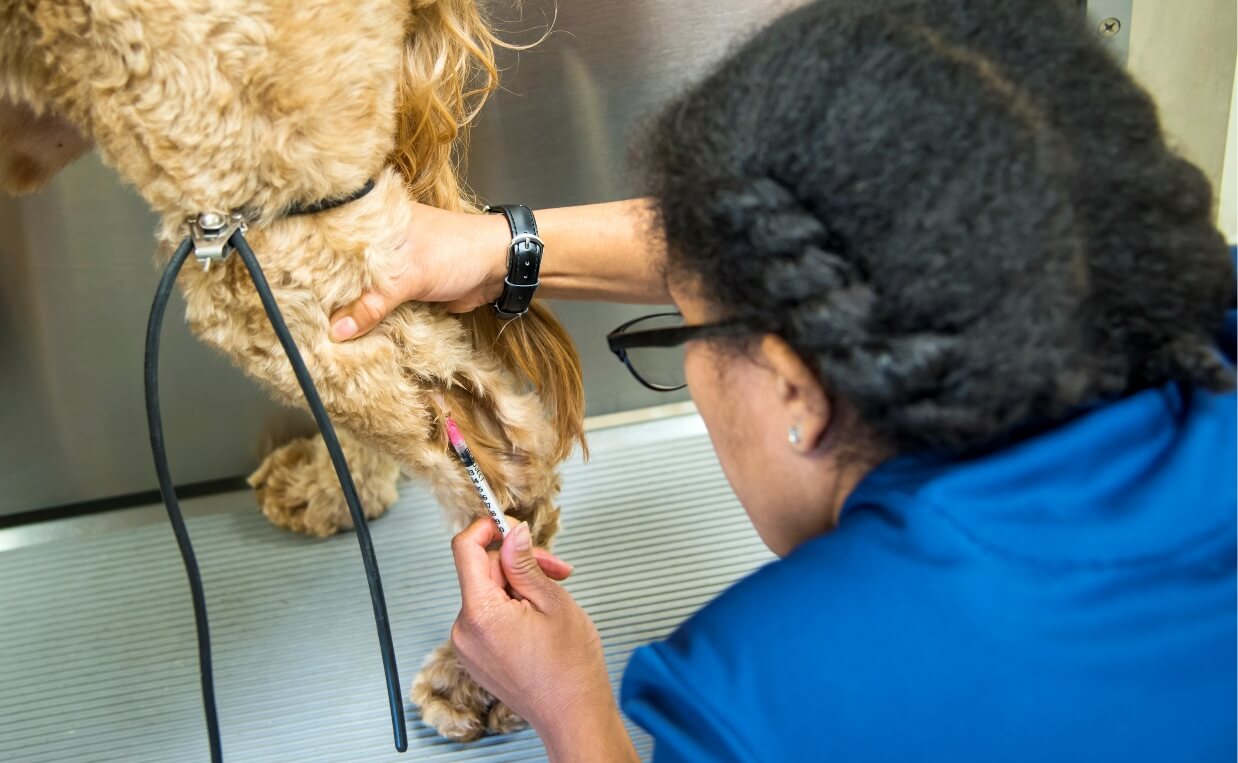
What Happens to the Blood Once It’s Collected
Once the blood is collected it is spin-processed in a centrifuge and separated into components. The most common blood transfusions require red blood cells and plasma.
What Blood Type Is Your Dog?
Like humans, dogs have different blood types. However, in canines blood types are categorized into “groups”. There are over a dozen canine blood groups, six of which are the most common. There is one “universal” canine donor group to which roughly 40 percent of dogs belong. Blood from dogs belonging to the universal blood type can donate to any prospective recipient, making them ideal donors.
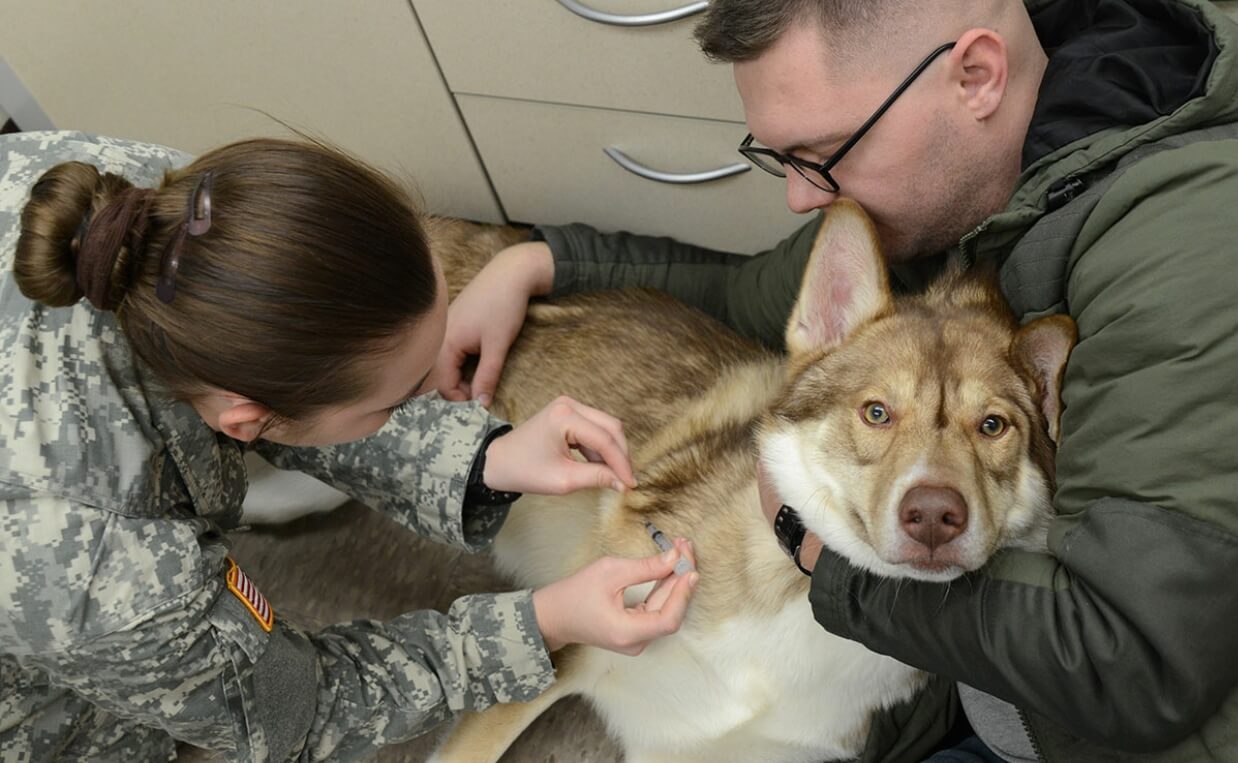
Benefits of Canine Blood Donation
In addition to the satisfaction of knowing your dog’s blood has helped to save the lives of other dogs, many veterinarian hospitals and blood banks offer other tangible benefits, such as:
- Cost savings on preventative care
- Extensive blood screening and typing (this is valuable medical information about your dog)
- Free food
- Future veterinary services
- Free lifetime blood transfusions should the need arise
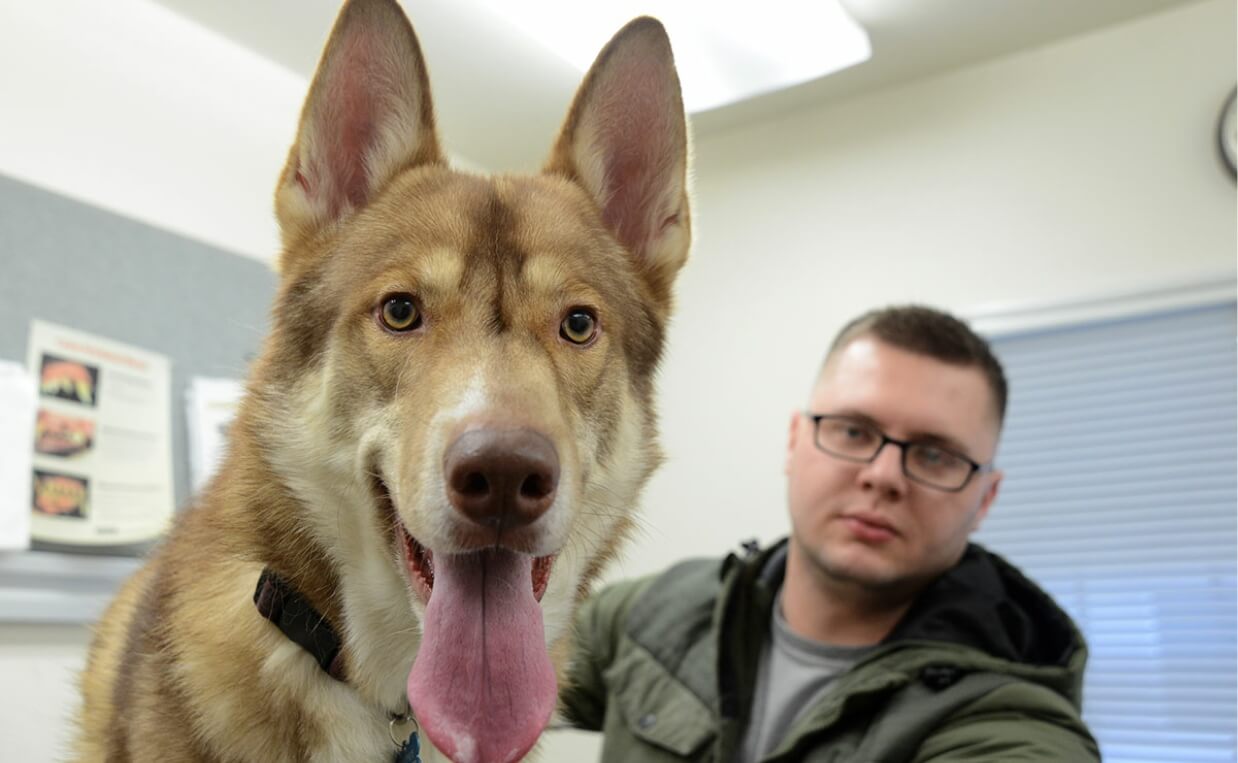
How to Participate in a Canine Blood Donation Program
While canine blood donation programs vary across states, the need for canine blood is constant. If you are interested in learning more or donating blood, talk to your veterinarian or reach out to the local Colorado Springs blood donation program HemoSolutions. Their number is 719-380-1900 or 1-800-436-0219.
Has your dog donated blood? What was your (and your dog’s) experience? Please share in the comments below.

 Xylitol Poisoning in Dogs
Xylitol Poisoning in Dogs Urinary Incontinence in Dogs
Urinary Incontinence in Dogs Tick-Borne Diseases in Dogs – Symptoms and Treatment
Tick-Borne Diseases in Dogs – Symptoms and Treatment 5 Tips for Preventing Obesity in Your Dog
5 Tips for Preventing Obesity in Your Dog 5 Reasons Your Dog Has Bad Breath
5 Reasons Your Dog Has Bad Breath






Leave a Reply